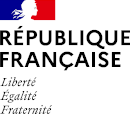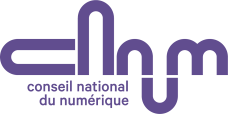Report: Digital Accessibility, between Necessity and Opportunity
Seized by the Secretary of State for Digital Affairs, Cédric O and the Secretary of State for the Disabled, Sophie Cluzel, the French Digital Council conducted a study on scenarios for improving digital accessibility between February 2019 and January 2020. In the perspective of the National Disability Conference (CNH) on 11 February 2020, the Council published its report on digital accessibility, which was submitted to the Ministers on 5 February 2020.
Context
At a time when digital responsibility becomes increasingly important to address environmental and social issues, digital accessibility appears as a necessity as well as an opportunity for all actors in society. A necessity, first of all, since digital accessibility meets both societal and legal obligations
- On the one hand, digital accessibility responds to a real need of the population. In the context of the digital transformation of public and private services, it represents a necessity for the majority of citizens. This majority includes the millions of people with disabilities, but also the elderly, the youngest people with myopia, etc. Today, it is only by developing accessible digital services that stakeholders will be able to reach a large part of the population.
- On the other hand, it is now a legal obligation and sanctioned by law: as a fundamental right of citizens, digital accessibility has been the subject of several legislative and regulatory measures, making it a real obligation for the stakeholders. There is therefore an urgent need for these actors to establish a legal strategy for e-accessibility in their organisations.
Digital accessibility is also an opportunity, as it could lead to the emergence of a more responsible model of digital society and economy.
- Accessibility could renew the European digital economy in a sustainable way, through the creation of jobs linked to digital accessibility, but also through research and project funding. Faced with global competition and more specifically from GAFAM (Google, Amazon, Facebook, Apple or Microsoft), it seems fundamental to encourage the development of our digital accessibility startups and to finance digital accessibility projects based on artificial intelligence.
- Finally, digital accessibility would make it possible to convey the culture of a responsible digital society. To do this, it is essential to raise awareness of the subject from school, at university and throughout life. Above all, it is time for France and Europe to design accessible digital products and services, according to our fundamental values such as inclusion, equality and non-discrimination, respect for privacy but also ecology and digital sobriety.
Between necessity and opportunity, digital accessibility thus represents an interesting strategic tool for organisations - both public and private- that wish to develop their digital products and services in a responsible way. Above all, however, it is a fundamental right of citizens, which must be promoted and implemented urgently, in the current context of digital inaccessibility of most services.
Recommendations
Regarding the hearings conducted by the French Digital Council in three key areas - citizenship, culture and education -, it appears that this digital accessibility is not sufficiently taken into account by public and private players. In order to improve its deployment, the Council proposed three lines of recommendations.
On accessibility of digital public services
- Rationalize the management of digital accessibility of public services by creating a Ministerial Delegation for Digital Accessibility (DMAN) attached to the Secretary of State for Digital Affairs, which will ensure the monitoring and implementation of accessibility obligations, through the power to sanction on the basis of self-referral or user complaints;
- Making the actors of the administration more responsible, for example by appointing a delegate for digital accessibility, or making e-accessibility an obligatory condition for execution in public procurement tenders;
- Reinforce the rights of users vis-à-vis the administration, by setting up an online platform for reporting to the Ministerial Delegation for Digital Accessibility (DMAN), which will be responsible for processing and centralising complaints.
On accessibility of audiovisual content
- Improve the management of the digital accessibility of audiovisual content by giving to the Future French High Authority for Audiovisual and Digital Communications (ARCOM) the task of regulating the accessibility of websites of television and audiovisual media services and not only audiovisual content, or even the electronic communications operators who provide the infrastructures and networks ;
- Making the players in the audiovisual content value chain responsible by harmonising the accessibility regime with public players, and including video sharing platforms under certain conditions;
- Encourage interoperability of accessible audiovisual content.
On accessibility of digital learning resources
- Improve the production of accessible and adapted digital educational resources by creating an agency for the accessibility and adaptation of digital books, in order to manage the production of accessible and adapted digital books ;
- Improve the accessibility of pedagogical platforms by implementing the obligation of accessibility of digital work environments;
- Develop skills for adapting and making digital educational resources accessible in the French National Education system and Higher Education.
Then, the Council examined digital accessibility as an opportunity for the digital society and economy, in terms of jobs and training, but also in terms of innovation and values.
On training and employment in digital accessibility
These sectoral observations were accompanied by a cross-cutting observation: the lack of training of web and digital professionals in terms of accessibility.
- Raising awareness of digital accessibility regulations among digital professionals: create a MOOC to raise awareness of digital accessibility regulations, based on the model of the "RGPD workshop", an online training course proposed by the CNIL, and finance awareness and training actions for digital professionals;
- Integrate digital accessibility into the initial and continuing training of digital professionals: include digital accessibility skills in the training references that set out the skills to be acquired for an organisation to issue a State diploma, create compulsory certification for digital professionals;
- Structuring the digital accessibility professions: registering digital accessibility in the National Directory of Professional Certifications (RNCP) by declining this certification according to four job profiles (referent, expert, consultant, testeur).
Methodology
The French Digital Council conducted more than fifty hearings with experts from the worlds of academia, associations, business and public administration. The Council also took part in around ten events related to the subject, either in the form of interventions by the pilot member of the working group, Jérémie Boroy, or as an observer. In addition, the French Digital Council participated in the organization of two workshops on the subject. The first, on training, took place as part of the French section of the Internet Governance Forum (IGF) in Paris on 4 July 2019. The second, on the subject of participatory design of digital services, took place on 27 November 2019 as part of the Internet Governance Forum (IGF) in Berlin,under the auspices of the United Nations (UN). The exchanges gathered during these two workshops have contributed to this report.





